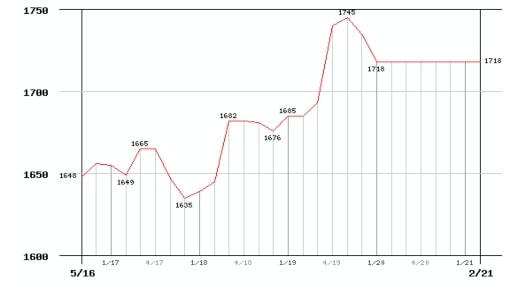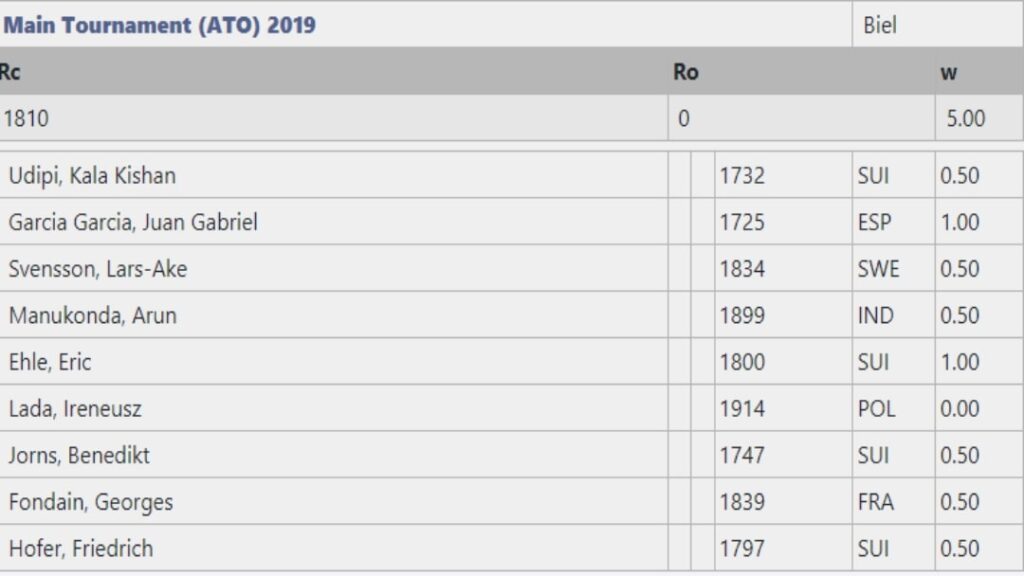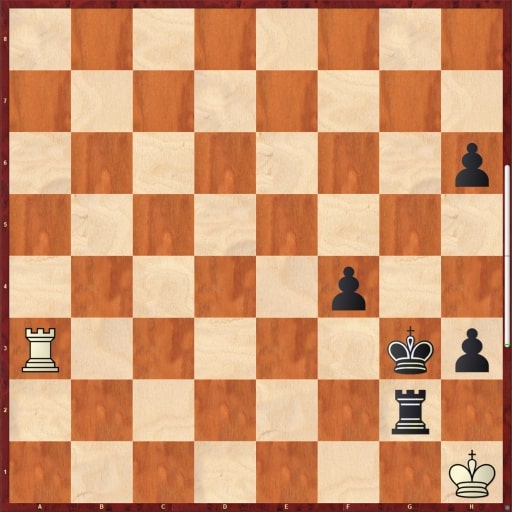While there is no one-size-fits-all approach to chess improvement, there is one thing everyone has in common:
EVERYONE CAN IMPROVE THEIR CHESS.
And it does not have to be that hard.

The Story Of A Former Student
If you look at the rating curve above, you will probably think of some junior improving over time.
You could not be more wrong.
This rating curve belongs to a 70-year-old gentleman I had the pleasure to Coach from 2018-2020.
It is proof that nobody is too old to improve in chess! So, stop telling yourself you are too old or started too late.
After reading this you have absolutely no excuses anymore :-).
I am certain that without Covid-19, he would have improved his level further on. After all, his only FIDE-rated tournament up to this point ended with the following result:

Thus, his international Rating sits at 1830 until this day, which is nearly 200 points higher than his initial national rating.
Everybody Can Improve
I remember when we first had contact. He told me his fascinating story: he was playing chess in his youth, then stopped for around 50 years, and came back to chess after retiring from his job.
One of the first things he said was: “I know I am too old to improve, but I would hope to hold my level with your help”.
He liked Chess and he also knew that Chess reduces the likelihood of dementia. His main goal was not to improve. It was to enjoy the games.
But training and enjoyment without improvement just sound very alien to my ears.
So, while some people would have seen easy Money without expectations, I rather saw a great challenge. If we, as a team can improve our results, then nobody has any excuses anymore.
On that summer evening, we started to line out a plan.
As he has several Children and Grandchildren, his time was limited despite not working anymore.
We agreed on 1 training session per month of 1.5 hours.
To be honest I thought this was too few to see real improvements kick in soon enough. But as it turned out, my doubts were unfounded.
Focus On The Essential In Order To Improve
With so little time, we were absolutely forced to focus on the essentials.
The first few sessions were important to understand his weaknesses. What are the game-losing mistakes?
You can do this process yourself with the help of this article I wrote: The Most Effective Chess Training Method.
Soon enough we found out that he gets tired towards the end of the game and then blunders. If we managed only to stop those blunders, his results would improve immediately.
Solving tactics can help.
But when one is really tired, mistakes are nearly unavoidable. So we were digging deeper and came up with the following main points:
- Taking breaks during the game. If you have limited energy, you need to make sure to use it at the moment with the biggest return-on-investment (ROI). Sometimes it is best to relax and conserve your energy.
- Enough and good nutrition during the game.
- Playing the positions he likes. He often ended up in complex tactical positions that need lots of energy. Starting to play strategic/positional positions was key.
While the first two points could be fixed relatively easily, we soon focused on the third.
Easy Position > Advantage
If he feels comfortable in the positions early on, he uses less energy. This means he will still have the ability to focus later on and not blunder.
Instead of playing the English Attack in Sicilians, we just went for the easy Rossolimo. What should he do against the nasty accelerated Dragon?
Simply castle short, say no thanks to any tactical battles, and play positionally!
Even though he might not have had any advantage anymore out of the opening, he consistently started to outplay his opponents.
And no, I did not give him my GM Analysis files and that is why he outplayed his opponents. The files he got were extremely small. Reduced to the absolute minimum he needs to know.
With the knowledge and his positional style, he then outplayed his opponents. As soon as he knew where his pieces belong and his king was safe, he took control of the game.
With our knowledge back in his mind, he started to make more conscious decisions. Queens off the board? Hell yes, that makes the game easier!
While it was hard to improve his brain capacity, he started to learn to make the best out of what he still had in himself. And that was a LOT!
Great Fights Until The End
What happened with his games was simply amazing. Not only did he play much better, but he suddenly had the energy to fight right until the end.
He simply preferred to exchange many pieces early on, go into an endgame and ground the opponents down. As the positions were easy for him and he took enough breaks, there was no big problem in playing longer games anymore.
Imagine you face a 70-year-old that barely ever played a tournament game and he just grinds you down in 5 hours.
Sometimes I felt sorry for his victims…
But also in more crazy games he suddenly started to score better.
The absolute highlight of our Journey together was when he tricked the best U8 Player in Switzerland at the time in a stalemate on move 64.
This was during a 9-round tournament with only one rest day. In fact, it was his first tournament that lasted for so long.
But as he understood his needs, he could keep his energy level high up and do the following:

He lost a pawn early on but kept fighting like a Lion. As soon as his opponent put the Rook on g2 he understood that he got a chance. The kid did only expect resignation and played 64…f3? (Kg4 still wins after 65.Rxh3 Rg1+! wins in the resulting pawn ending).
After 65.Rxf3+ the escape was real! If the King takes it is a stalemate and after 65… Kg4 he kept picking up pawns 66.Rxh3! and then Rxh6 with a draw.
It is not every day that you see a 70-year-old underdog drawing an 8-year-old talent with a stalemate trick!
Hollywood says hello.
Takeaways
This story is my favorite when it comes to Chess improvement. He has shown that nobody is too old to improve. And he did not need hundreds of hours of study.
By simply understanding his main weakness and then curing it, we improved his results. We basically only focused on that one single point.
Working with this Gentleman has also given me motivation. If he manages to play 9 fighting games, I have absolutely no excuse not to do so.
If he can still improve, then everybody can!
There are two things I want to tell you by writing this article:
- EVERYBODY can improve himself.
- Working Smart beats working Hard. If you can even combine the two, then good luck to your future opponents!
So what are you waiting for? Get your journey for Chess improvement going! You can use my FREE Guide to organize your Chess Training to get off the ground.
And maybe I will soon write about your inspiring story on this blog. I would certainly love to hear from you in the comment section.
Sincerely,
Noël